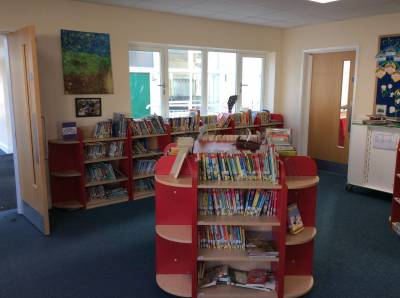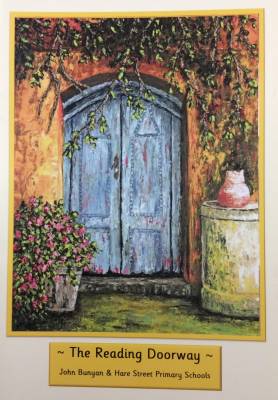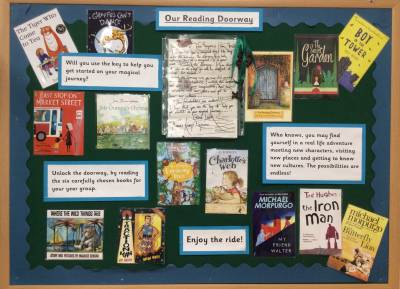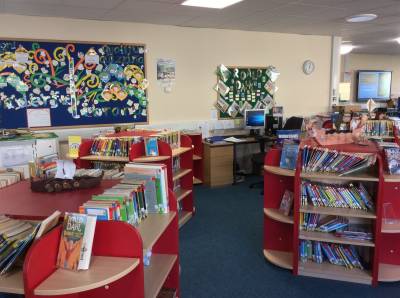Our Approach to the Teaching of Reading
At John Bunyan Primary School and Nursery, we are determined to foster a love of reading for all of our children. We invest hugely in our school library and in books for our classrooms, so that children have access to high quality texts that will tempt them and develop a passion for reading that will last a life time.
|
|
 |
Foundation Stage, including Nursery
As soon as children come to our school, we immediately begin the process of learning to read. In Nursery, the children have daily learning opportunities which introduce them to initial letter sounds, Early Talkboost and the Ultimate Guide to Phonological Awareness programme. In the Foundation Stage, the daily systematic synthetic phonics teaching of Little Wandle Revised Letters and Sounds provides the fastest and most effective way of getting our young children to start reading. We aim for all children to be blending by the end of the Autumn Term in Reception.. Children are rapidly taught a series of sounds and then apply these to a series of matched books that include these sounds. Our aim is to ensure children feel confident and can fluently read and reread simple texts. Consistent teaching, together with rigorous, regular assessments enable us to identify any gaps in the children's learning as soon as they arise and then put in daily ‘Keep Up’ practice to overcome these barriers. Alongside these phonetically decodable books, children also take-home high-quality fiction and non-fiction books which we encourage parents and carers to share with their children to develop a love of reading. Parents of our younger children are invited to share a story in our library with their children’s class and at this time, the teacher will model the sounds that are being taught and the strategies being used to teach reading.
 |
 |
Key Stage 1
The consistent teaching of Little Wandle Revised Letters and Sounds phonics programme continues throughout Years 1 and 2. Our programme is structured in such a way as to ensure the teaching of phonics is systematically delivered and that progress is built on from year to year. By the end of Year 2, it is our expectation that children will be fluent readers and will no longer need explicit phonics teaching for reading. In Year 2, any children that are not at age related expectations will begin the Little Wandle, ‘Rapid Catch-Up intervention. Some pupils start the No Nonsense Spelling programme which allows them to develop their spelling and transfer their phonic knowledge into their written work.
Reading is explicitly taught in groups with a focus on decoding, prosody and comprehension using Little Wandle Letters and Sounds books. Families are encouraged to join us every Monday morning from 8.45-9.10 for ‘Stay and Play’; providing opportunities to engage in learning activities and to share books with their children in our library or classrooms.
 |
Key Stage 2
By Year 3, most children will be ready to move onto our Accelerated Reading programme. Our children find this highly motivating as they quiz after reading each book and continuously read more challenging texts. The reading strategies of activating prior knowledge, predicting, fluency, clarifying, questioning and summarizing are built upon from Key Stage 1 and promote a more inferential level of thinking. Children have an opportunity to develop these further during our quiet reading sessions and through class studies of high-quality books, as well as shorter text through our Talk for Writing programme. The direct teaching of vocabulary is embedded across the school through Vocab Ninja, where children are introduced to new vocabulary which extends their thinking and enables them to access more challenging texts. Again, any children that are not at age related expectations will take part in the Little Wandle Rapid Catch-Up intervention.
At John Bunyan Primary School, teachers give time to reading aloud to children, so that they can enjoy hearing stories that they might not yet be able to access independently. Many opportunities are created for children to develop a love of reading including our Reading Doorway project where children read a core set of books for each year and collect stamps to complete our Reading Doorway Booklet over their time at John Bunyan Primary.
Families are encouraged to join us every Friday morning from 8.40-9.10 for ‘Come and Read’; providing opportunities to share books with their children in our library and in the classrooms.